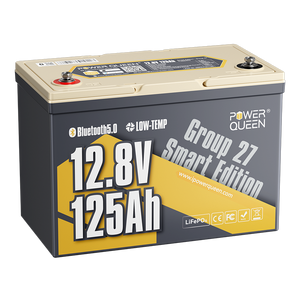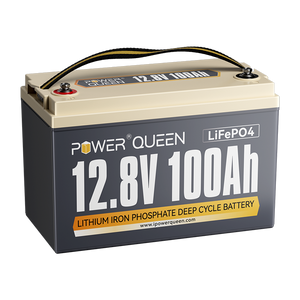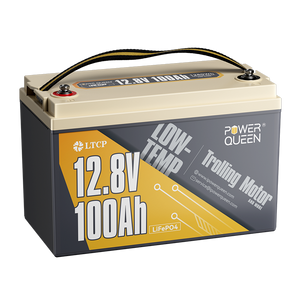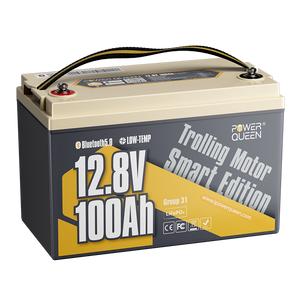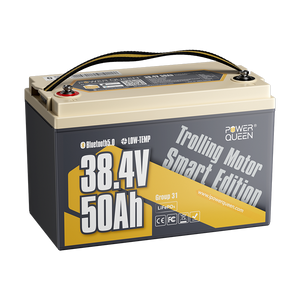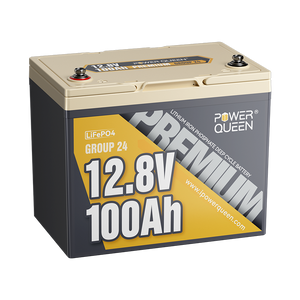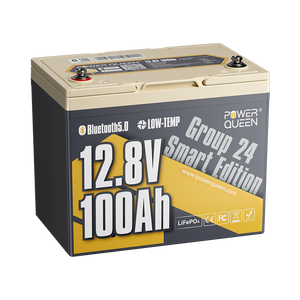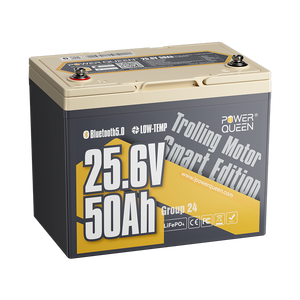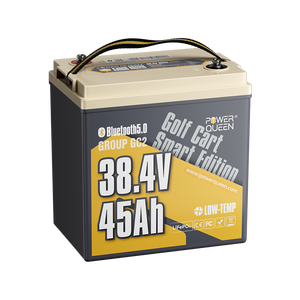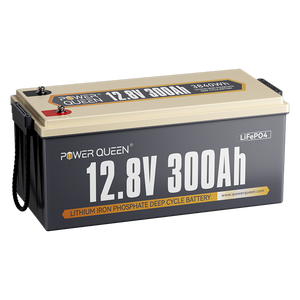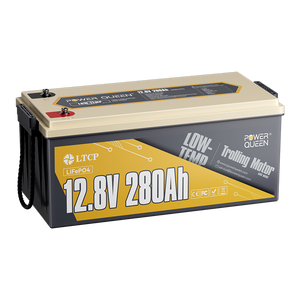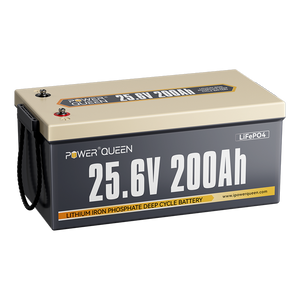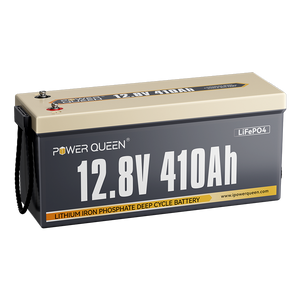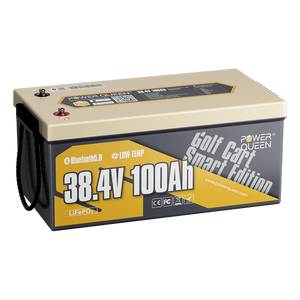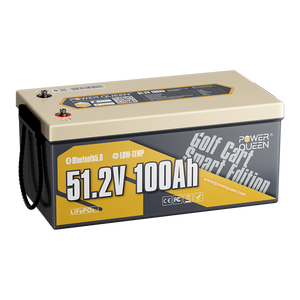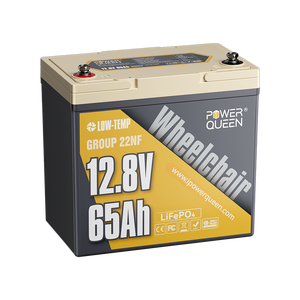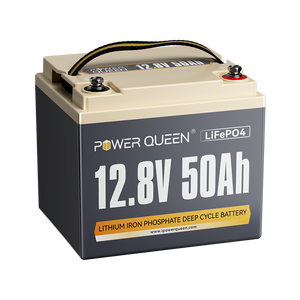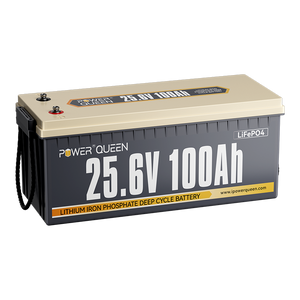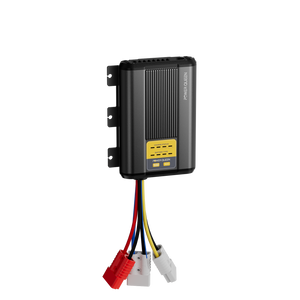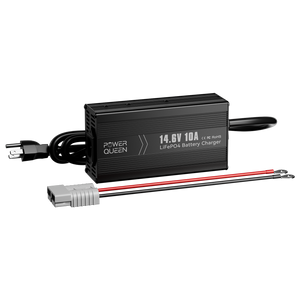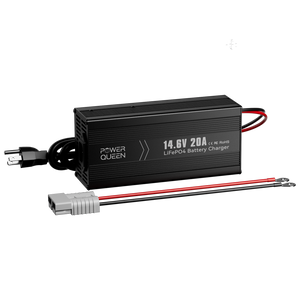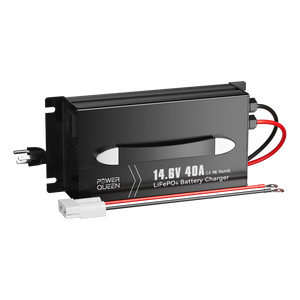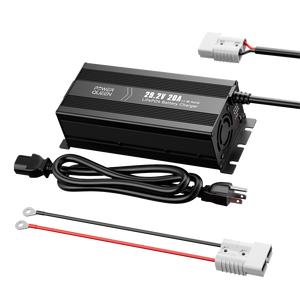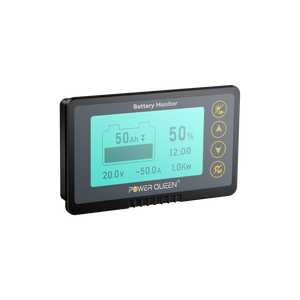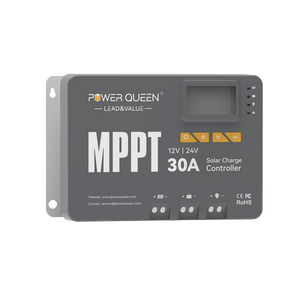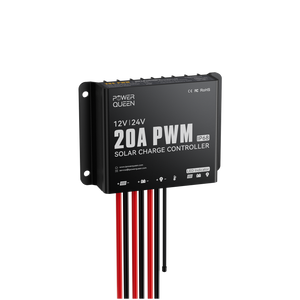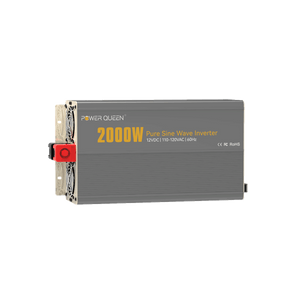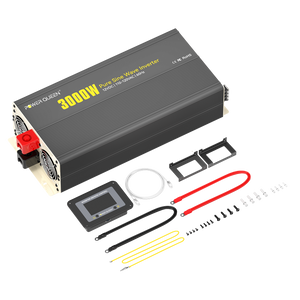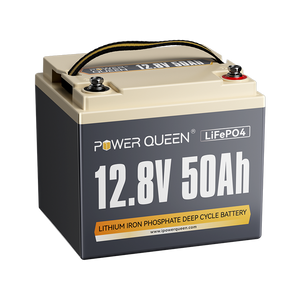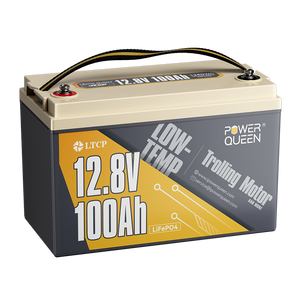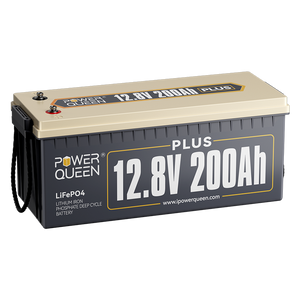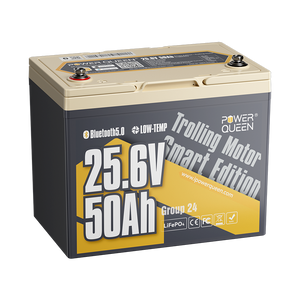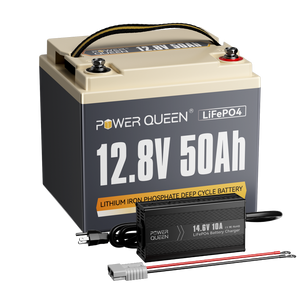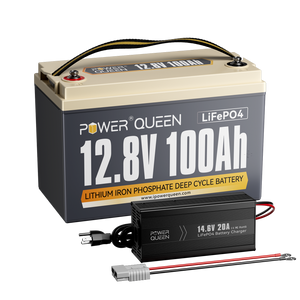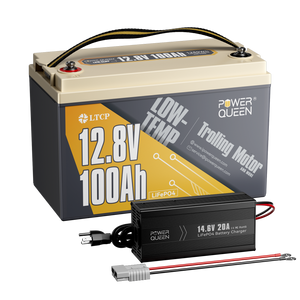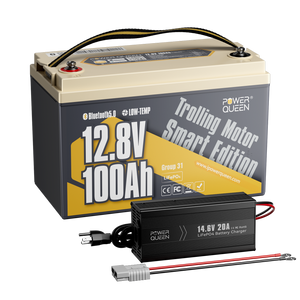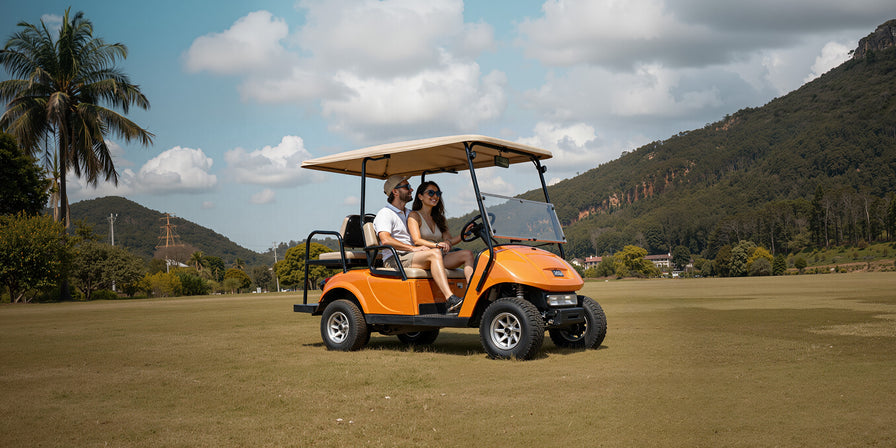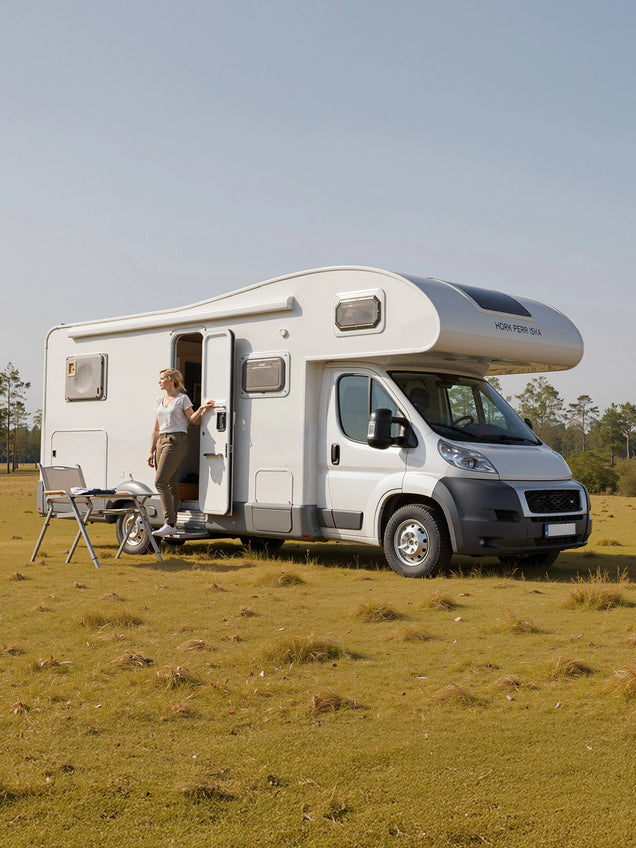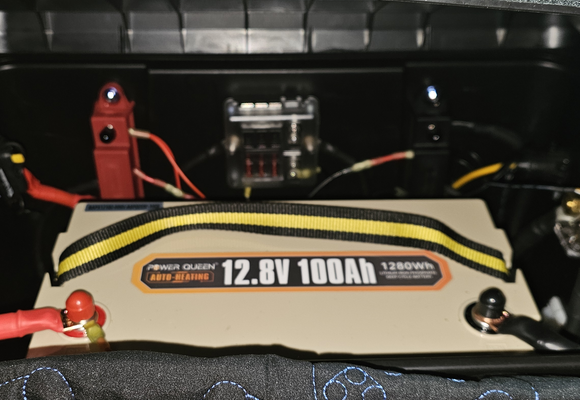[2026] Full Comparison of Prismatic vs Pouch Cells
Today, as technology advances, the use of rechargeable batteries is becoming more prevalent in our everyday lives. Among the various types of rechargeable batteries available, prismatic and pouch cells have gained significant popularity.
In this article, we will provide a full comparison of prismatic vs pouch cells to help you understand their characteristics.
Part 1: What are Prismatic LiFePO4 Batteries
Prismatic cells are a type of lithium-ion battery characterized by their rectangular or square shape. They are typically made of metal casings and are commonly used in laptops, tablets, and power banks. Prismatic lithium-ion batteries use aluminum alloy or stainless steel for their rigid casing. The internal structure of the battery can be either wound or laminated, providing enhanced protection for the battery cell compared to the flexible packaging of pouch cells.

Power Queen 12.8V 100Ah Prismatic Cell---HOBOTECH Tear Down Review
Features of Prismatic Cells
Prismatic cells have several distinct features that set them apart:
- Shape and Size: Prismatic cells have a rigid rectangular shape, resembling a brick or a flat box. They are available in different sizes and dimensions, ranging from small to large.
- Energy Density: Prismatic cells offer a higher energy density compared to other lithium-ion battery types. This means they can store more energy in the same physical space, making them suitable for high-energy applications.
- High Voltage: Prismatic cells generally have a higher voltage output, which can be advantageous in certain applications. It can lead to better performance and efficiency in devices that require higher voltage levels.
- Durability and Safety: Prismatic cells typically come with a metal casing, which provides better protection against external stress and damage. This can enhance safety and durability, especially in applications where the battery may be subjected to harsh conditions.
- Thermal Management: Due to their metal casing, prismatic cells have better thermal management capabilities. The casing allows for the dissipation of heat more effectively, reducing the risk of overheating and potential damage to the battery.
Part 2: What are Pouch Cells
Pouch LiFePO4 (Lithium Iron Phosphate) batteries are a type of lithium-ion battery that uses LiFePO4 as the cathode material. The soft aluminum coating makes the battery lighter and, depending on its purpose, allows for adjustable size and available space. This enables flexible units to easily adapt to the available space of a given product. In terms of space optimization, this means achieving 90%-95% packaging efficiency and higher energy density.
By adopting a more convenient design, soft-pack batteries have the potential to match next-generation high-performance batteries, thereby accelerating the electrification demands of electric vehicles and consumer electronics products.

Power Queen 12.8v 100ah MINI pouch cell-- Roll2 Videos
Advantages of Pouch Cells
- Safety: LiFePO4 chemistry is inherently safer than other lithium-ion chemistries, such as lithium cobalt oxide (LiCoO2). It has a higher thermal stability and is less prone to thermal runaway, making it less likely to catch fire or explode.
- Long cycle life: LiFePO4 pouch cells typically have a longer cycle life compared to other lithium-ion batteries. They can endure hundreds or even thousands of charge-discharge cycles without significant capacity degradation, making them suitable for applications requiring long-term reliability.
- High power density: LiFePO4 pouch cells have a high power density, allowing them to deliver high currents when needed. This makes them suitable for applications that require high power output, such as electric vehicles or power tools.
- Wide temperature range: LiFePO4 pouch cells can operate over a wide temperature range, from -20°C to 60°C (-4°F to 140°F), without compromising performance. This makes them suitable for use in extreme temperatures and harsh environments.
- Environmental friendliness: LiFePO4 chemistry does not contain harmful heavy metals like cadmium or lead, making it more environmentally friendly and easier to recycle.
- Lightweight and compact: Pouch cell design allows for a flexible and lightweight form factor, making them ideal for space-constrained applications where size and weight are crucial factors.
The Power Queen 12V 100Ah Mini battery is highly sought after in the market due to its compactness and light weight, tipping the scales at just 19.77lbs. Being only 3/5 the size of other batteries with the same capacity, it stands out among its competitors. The utilization of pouch cell technology plays a significant role in enabling such a small and lightweight design for this battery.
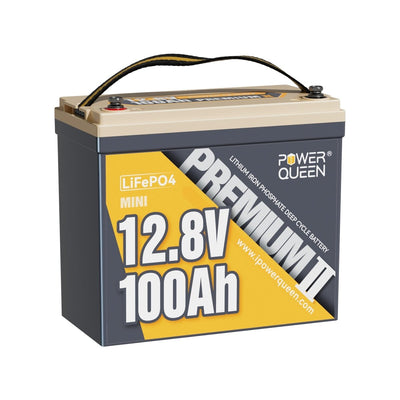

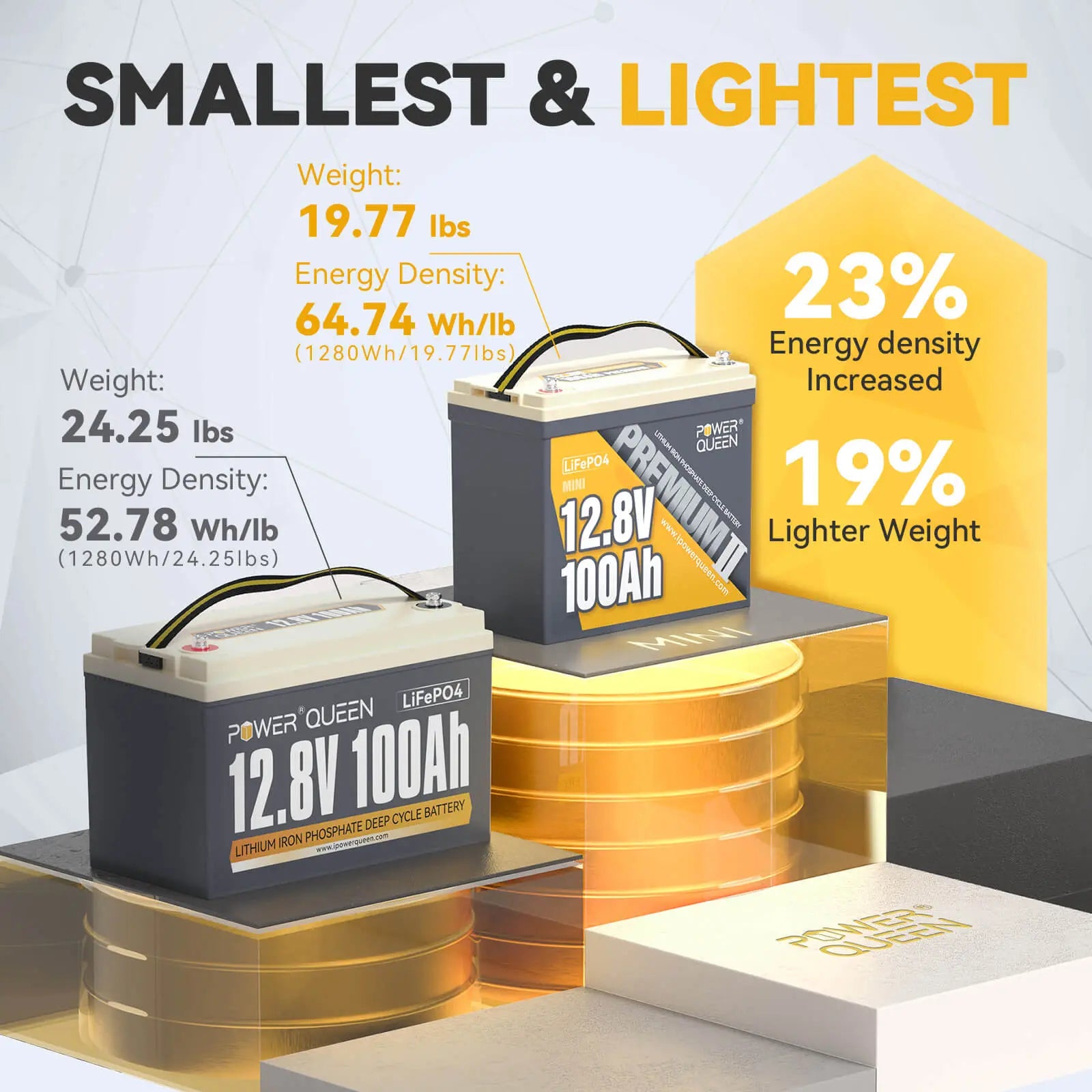
Safety Concerns about Lifepo4 Pouch Cells
One common concern with pouch cells, including the LiFePO4 pouch cells, is the potential for swelling. Swelling can occur due to a variety of factors, such as improper charging or discharging, overcharging, or exposure to extreme temperatures.
However, it's important to note that LiFePO4 pouch cells are generally considered safer than other lithium-ion chemistries, such as lithium cobalt oxide (LiCoO2) or lithium nickel manganese cobalt oxide (NMC). This is mainly due to the inherent stability of the LiFePO4 chemistry, which is less prone to thermal runaway or "thermal runaway".
LiFePO4 pouch cells have a higher thermal stability and lower energy density compared to other lithium-ion chemistries. This means they have a reduced risk of overheating and lower likelihood of thermal runaway, making them a safer option for certain applications.
Additionally, LiFePO4 pouch cells typically incorporate a range of safety features, such as a pressure relief valve and thermal protection measures. These safety mechanisms help mitigate the risk of swelling, overcharging, or thermal runaway.
Furthermore, the flexible design of pouch cells allows for more effective heat dissipation, preventing excessive temperature build-up and reducing the risk of swelling. Pouch cells also have a lower internal resistance compared to prismatic cells, which helps minimize heat generation during charging and discharging.
It is worth mentioning that ensuring proper charging and discharging practices, as well as observing the recommended temperature range, are crucial for maintaining the safety and longevity of any lithium-ion battery, including LiFePO4 pouch cells.
In summary, while swelling can be a potential concern for pouch cells, LiFePO4 pouch cells are generally considered safer than other lithium-ion chemistries due to their inherent stability and the incorporation of safety features. By following proper care and maintenance guidelines, the risk of swelling and other safety issues can be minimized, making LiFePO4 pouch cells a reliable and safe choice for various applications.
To ensure compliance with regulatory standards such as UL, CE, and RoHS, it is crucial to ensure that LiFePO4 pouch cells have obtained the necessary safety certifications. These certifications indicate that the batteries meet stringent safety and environmental requirements, having undergone thorough testing and quality control procedures.
Power Queen’s batteries have the highest level of safety, as confirmed by UL Test Reports.
Difference Between Prismatic vs Pouch Cells
Shape
Prismatic cells have a rigid rectangular shape, while pouch cells have a flexible, flat design. Prismatic cells are typically larger and bulkier, while pouch cells offer greater design flexibility and can be made in various shapes and sizes.
Packaging materials
Prismatic cells generally have a metal casing, which provides better durability and thermal management. Pouch cells, on the other hand, use a flexible pouch made of laminated materials like aluminum and polymer, making them lightweight and allowing for more efficient use of space.
Size
Prismatic cells tend to be larger and thicker due to their rigid rectangular shape. Pouch cells are generally thinner and more compact, making them suitable for devices with space constraints.
Weight
Prismatic cells are typically heavier due to the rigid metal casing. Pouch cells, being lightweight and using flexible packaging, are lighter in weight.
Cell Voltage & Capacity
Both prismatic and pouch cells can have varying voltage and capacity depending on the specific chemistry and design. Typically, they provide similar voltage ranges, but capacity may differ based on their design and size.
Durability
Prismatic cells, with their metal casing, offer better durability and resistance to external stress compared to pouch cells. Pouch cells are more susceptible to damage due to their flexible nature and may require additional safety measures.
Cost
Prismatic cells are generally more expensive to produce due to their specialized metal casing design. Pouch cells, being simpler in construction with flexible packaging, are often less expensive to manufacture.
Performance
Prismatic cells have higher energy density and are suitable for high-energy applications where durability and thermal management are crucial, such as electric vehicles. Pouch cells, with their lightweight and flexible design, offer higher power density, making them suitable for devices requiring quick bursts of power, like smartphones and tablets.
Application of Prismatic vs Pouch Cells
Lithium-ion batteries have revolutionized the way we power our electronic devices, from smartphones to electric vehicles. Among the various types of lithium-ion batteries available, prismatic and pouch cells are widely used due to their unique characteristics.
Prismatic Cells: Powerhouses for Robust Applications
Prismatic cells, with their rectangular or square shape, are known for their durability and robustness. They find extensive use in applications that demand high performance and structural stability. Some notable applications include:
- Electric Vehicles (EVs): Prismatic cells serve as the backbone of EV battery packs due to their ability to handle high currents and provide sufficient energy density. The rigid metal casing provides excellent protection against physical damage, ensuring safety and long-term reliability.
- Power Tools: Power-hungry tools such as cordless drills and saws require batteries capable of delivering high power output. Prismatic cells excel in these scenarios, providing the necessary performance and endurance for extended operation.
- Energy Storage Systems (ESS): Prismatic cells are employed in large-scale energy storage projects, where reliability and longevity are critical. Their robust construction, combined with high capacity, makes them suitable for grid-level applications, helping to stabilize renewable energy sources.
Pouch Cells: Lightweight and Versatile
Pouch cells, on the other hand, offer a more lightweight and flexible design, making them ideal for portable electronic devices and space-constrained applications. Let's dive into some prominent areas where pouch cells shine:
- Consumer Electronics: Smartphones, tablets, and wearable devices greatly benefit from the thin and compact form factor of pouch cells. These cells can be customized to fit the specific dimensions of the electronics, maximizing space utilization while providing adequate power capacity.
- Medical Devices: Pouch cells find application in various medical devices, such as pacemakers and insulin pumps. Their small size and lightweight nature make them convenient for implantable and wearable medical technologies.
- Aerospace and Drones: The aerospace industry relies on lightweight components to optimize fuel efficiency. Pouch cells, with their low weight and customizable form factor, are increasingly used in aircraft and drones to power onboard systems and ensure longer flight times.
Advantages of Prismatic and Pouch Cells
While each cell type has its specific applications, both prismatic and pouch cells offer certain advantages:
- Prismatic cells provide enhanced durability and protection due to their rigid metal casing.
- Pouch cells are lighter and more flexible, allowing for greater design freedom and increased energy density in compact spaces.
- Both cell types deliver reliable performance with similar cell voltage and capacity.
- Prismatic cells excel in high-power applications, while pouch cells shine in portable and space-constrained devices.
FAQs about Prismatic VS Pouch Cells
1. Why compress LiFePO4 cells?
Compressing LiFePO4 cells improves contact between components, increases energy density, enhances safety, and extends longevity, making them more efficient and reliable energy storage solutions. It offers benefits such as improved performance, compactness, and mitigating risks like internal short circuits and gas release.
2. How to charge prismatic or pouch LiFePO4 batteries?
You can charge LiFePO4 batteries by generators, solar panels and LiFePO4 battery chargers. Read on how to charge LiFePO4 batteries to learn more.
Conclusion
In conclusion, both prismatic and pouch cells are safe to use. And each type has its own advantages. Choosing reliable brands like Power Queen that have passed safety certifications such as UL testing is definitely important when deciding on which batteries to use.
